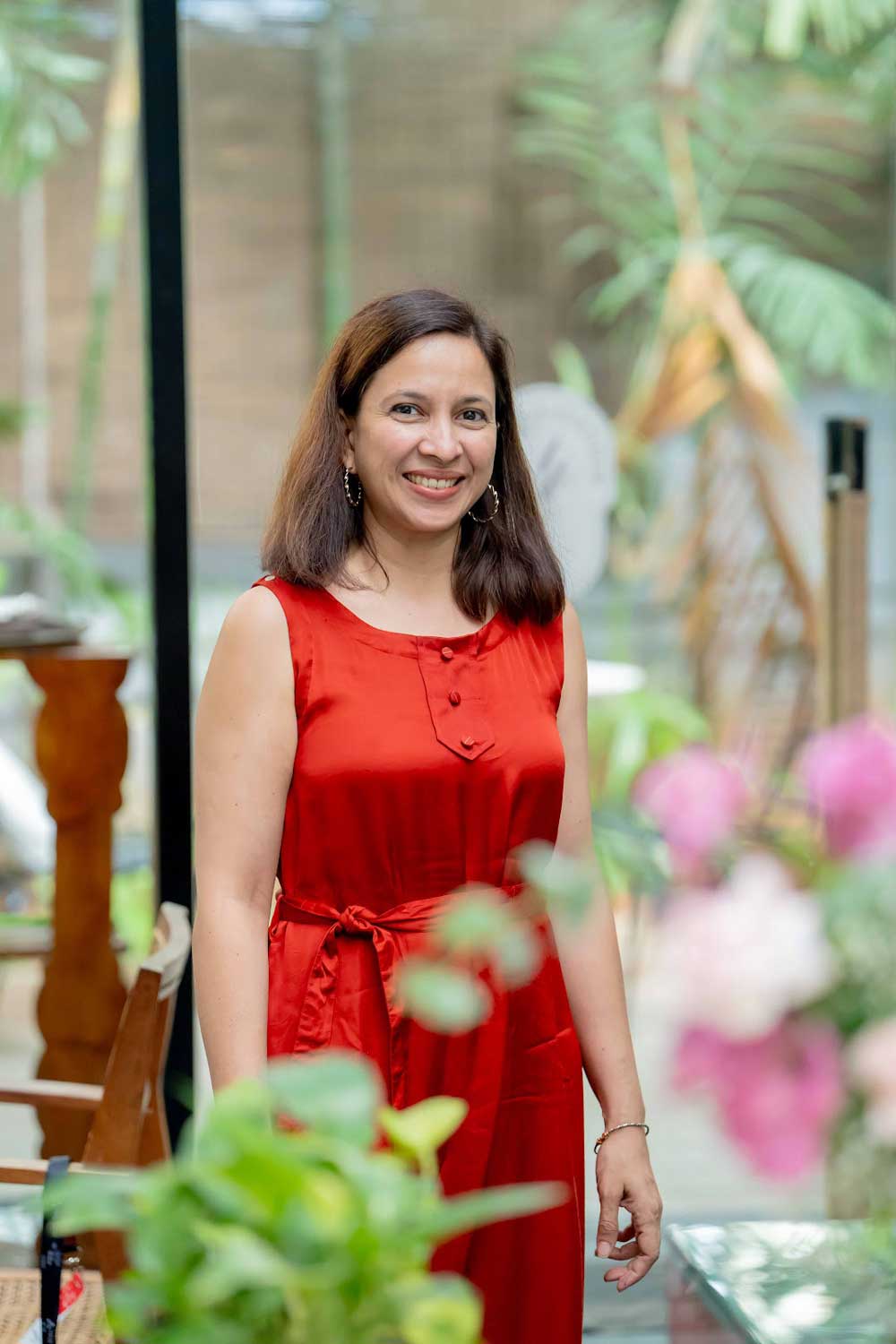Mridulika Menon’s brand Samasta bridges the gap between global aesthetics and Indian craftsmanship, reimagining time-honoured traditions through a modern lens. There is a focus on creating garments that are relevant to the modern Indian woman, with sustainable practices that celebrate slow fashion. Some excerpts from an interview:
What was the impetus behind creating Samasta? What inspired your journey into fashion and textiles?
After nearly a decade in Washington DC, I felt a deep pull to return home and build something that combined purpose with creativity. I’ve always been inspired by my mother, Arundhati Menon, who founded Shilpi, a name synonymous with handloom in Chennai. Watching her work closely with artisans as a child had a lasting impact on me. My academic background also played a role. At Georgetown University, I pursued a master’s thesis where we won a World Bank grant, working with women weavers’ cooperatives in Kangra Valley, Himachal Pradesh to develop a global branding strategy for their shawls. That experience helped me see the immense potential in our crafts and how design and strategy could give them new life.
In a world driven by fast fashion, what does Samasta bring to the table?
We believe fashion should have a soul. Our process begins with the weaver and ends with a piece that’s not only beautiful but also built to last. We use handwoven textiles from across India—Fulia cotton from Bengal, Ikats from Telangana, Tussar from Bhagalpur Bihar, and more—and reinterpret them through modern silhouettes. Our recent Japan-inspired collection is a great example. We designed with handwoven tussar cotton and fine cotton, integrating subtle motifs like bamboo, ginkgo leaves, chrysanthemums, and tiger lilies. These are not seasonal trends—they're timeless, made to be worn, loved, and passed down. We also converted our Fulia Sequins stoles on superfine cotton into a timeless collection of dresses, overlays, and stoles. Our new ikat line of dresses and kimono overlays brings Indian ikat in contemporary dresses are internationally appreciated.
How do you support local livelihoods while keeping your process low-waste?
We work directly with weavers in Fulia to create exclusive handloom sarees and stoles. These are woven specifically for our designs. We also collaborate with Porgai, an NGO that provides tailoring and embroidery work to Lambadi women artisans, ensuring steady income and skill development. Every product is designed with efficiency in mind, using as much of our fabrics as possible and upcycling scraps into accessories. Everything is small-batch, made with intention and care. We promote women artisans and support everything made in India.

What practices do you promote for a more sustainable fashion ecosystem among designers, makers, and consumers?
We advocate for conscious creation and consumption. For designers and brands, it means working directly with artisans, choosing low-impact processes, and building long-term relationships rather than short-term profits. We recently launched Studio Samasta—a multi-designer concept space that brings together sustainable Indian labels under one roof. Each brand we curate shares a commitment to ethical production and thoughtful design. For consumers, we encourage buying less but better, choosing pieces that resonate with their values and lifestyle. Clothing should be a reflection of who you are, not just what's trending.
Tell us about your product lines and your typical Samasta customer.
Our collections are crafted for women who appreciate quality, detail, fabric, and versatility. From ages 25 to 65, our customers include working professionals, creative folk, travellers, and those who simply love beautifully made clothing that are statement pieces or items they will love for several years rather than just one season. We offer curated handloom sarees, lightweight embroidered saris, overlays, stoles, dresses, and even contemporary styles like jackets, dresses, and dhoti jumpsuits. We also have jewellery that is handcrafted, like Dokra and silver jewellery, as well as kemp jewellery. Everything is made in small batches using handwoven fabrics and designed to flatter and function across occasions. You’ll find us at our boutique in Alwarpet, Chennai, and online. We also pop up at design exhibitions across India and internationally.
You’ve also collaborated with other Indian brands. What do you look for in a partnership?
Our collaborations are value-led. We work with brands that champion Indian crafts like shibori, ajrakh, and natural dye techniques, and who prioritise sustainability in both materials and mindset. We’ve partnered with Doodlage, known for their upcycled fashion, and Sustainable Suz, who creates limited-edition jackets from deadstock fabrics. Every partnership is rooted in mutual respect and a shared vision for fashion that matters.
What’s next for you personally as a designer and entrepreneur?
Our goal is to be the definitive destination for curated sustainable fashion from India. We want to celebrate our textiles in ways that feel global yet grounded. Expanding across India and internationally is a big part of that dream. Personally, I want to keep supporting artisan communities, telling meaningful stories through design, and mentoring the next generation of fashion entrepreneurs who believe that sustainability and style can—and should—go hand in hand.